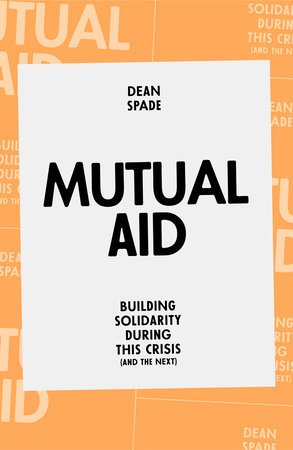Core Values
-
Empathy
Every person regardless of circumstance deserves community care. This means building up mutual aid structures as well as implementing government-run community support centers. I am an active member of the Neighborhood Emergency Team in Portland to support local resilience.
-
Longevity
If elected to serve District 4, I will have two years to make a difference before another election. While staying realistic about what’s possible in that time period, I will consider the long-reaching effects each of my decisions has on the environment, citizens, and creatures in our local landscape.
-
Diversity
Diversity of thought, cultural background, and experience keeps decisions grounded and reduces blindspots in a legislative body. In the absence of diversity in the council body itself, I will make independent efforts to seek out the voices of those impacted by a particular issue.
-
Participation
Voting for elected officials is not enough to involve constituents in local government. By educating the public on opportunities and reducing barriers to entry, I will make it possible for a greater number of people to participate. Additionally, I will back participatory budgeting measures.
Local Voices Make Change
After reading All We Can Save, I learned that change happens when the people in an affected area band together. They are the ones on the ground who care most and know about the issue.
This does not discount how urgently we need local government officials to convince larger bodies of national and international political groups to take action. As Martin Luther King, Jr. said, “Injustice anywhere is a threat to justice everywhere.”
As a member of City Council, I would move our City Council toward signing onto ceasefire resolutions, such as the one signed by the City Council of Portland, Maine. This a local issue because Israel is one of Oregon’s biggest export partners.
Platform Priorities
-
We focus far too much on measures such as GDP to determine how well we are doing as a city. What about happiness? Livability? Participation? Health?
Focusing on measures such as GDP means that we prioritize consumption over other measures of success. In order to fully combat climate change, we need to develop a culture that believes in the benefit of stabilizing the economy, rather than growing infinitely in a system with finite resources.
-
Climate change is no longer an issue that just affects future generations. We Portlanders have experienced it firsthand after facing wildfires, ice storms, and successive atmospheric rivers.
With food shortages and other unprecedented weather events around the corner, we need to educate the public and prepare.As a City Council member, I will advocate for emergency plans and emergency management staff to boost our climate resilience and educate the public.
Additonally, I am well aware of the earthquake concerns regarding the Critical Energy Infrastructure Hub and the toxic inhalant facilities along the Willamette. By advocating for risk bonds that require businesses to pay in advance for possible damages, we can make great strides to making Portland earthquake ready.
-
“Harm reduction” is a strategy that acknowledges that people will always take risks—the best thing we can do is educate them and provide resources to make sure they take those risks safely while minimizing harm to the community as a whole. While this concept is frequently applied to drug use, it extends to every type of personal freedom.
As a local government, there is little we can do to change the financial conditions that allow for people to lose housing. Still, we can rally the existing nonprofits and community aid groups already doing the good work to empower and care for unhoused individuals. In talking to them, we can discover and remove barriers to care.
By recognizing that drug use is often a symptom of a larger systemic issue, we can enter into conversations about solutions from a place of compassion and bodily autonomy while minimizing overall damage to the community at large.
Criminalizing people experiencing houselessness is the wrong direction.
Right now, many unhoused individuals are on long waiting lists to even get a bed at a shelter. And even if they do get one, they then don’t have anywhere to go during the day.
By reevaluating our zoning laws and redistributing funding, we can make it more possible for church groups and other organizations to offer more aid to these individuals in need.
These are our neighbors, and we need to treat them with dignity and care. -
We need a diverse and empathetic team to approach the people in need on our streets, not someone in an authoritarian, triggering uniform. As such, I would like to see Portland Street Response fully funded and expanded to 24/7 citywide coverage. Portland Street Response needs training and permissions to enter buildings and respond to suicide-risk calls to give our first responders more bandwidth.
We need caring people to care for our people.
-
To create more thriving, walkable cities, we need to make our current zoning and permitting laws less convoluted, more practical, and more up to date. By implementing multi-use zoning downtown, we can have gorgeously eclectic shopfronts with housing above them, creating a denser and more enjoyable experience of our downtown environment.
After the pandemic, many people created businesses out of their homes, but the zoning permits have not fully kept up with the breadth of enterprises and creativity that came out of that time period. We need more flexibility and options when it comes to small business permitting to make it more possible for creatives to thrive.
Portland has the largest percentage of vacant office buildings in the nation, and that’s not what I want our city to be known for. By coming up with creative solutions for repurposing this space, we can lead the nation in innovative community building instead.
-
We need streamlined methods of communication to reach our communities. Right now, in order to stay up to date with the latest going on with the city government, you need to sign up for dozens of individual bureau newsletters. What would it look like to have centralized and up-to-date information for all constituents?
By getting public buy-in on projects and policies we would like to implement, we increase the opportunity for us to come together as a community in a holistic, empathetic way. -
Because many citizens do not understand the role of government or how it functions, we leave ourselves open to criticism from people who might otherwise help us come up with creative solutions for systemic problems.
We need to educate the public on the role of local government, decrease the ability for corporations to meet privately with government officials, and ensure that our city departments have reasonable oversight.













